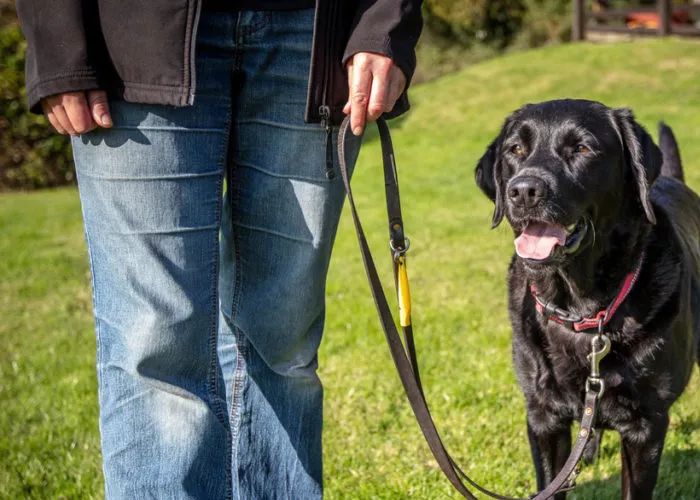Having struggled with my rescue dog Dixie’s unreliable recall, I realized that her behavior had escalated into bolting during our walks. After a series of frustrating failed attempts, I decided to retrain her from the ground up, as though she were a puppy again. With the help of a professional dog trainer, I managed to make significant progress.
The Process of Improvement
Find the Right Reward
To start, I needed to find a reward that would capture Dixie’s attention. Unlike many dogs, Dixie isn’t motivated by food, so I spent time experimenting until I discovered that dried sausages and cheese did the trick. I practiced recall inside the house, where she had no issues responding. However, her outdoors recall had been disrupted, partly due to my own anxiety when calling her.
Try a New Recall Word
My next step was to introduce a new recall word. Trainer Adam Daines explained that using the same word in negative situations might cause a “poisoned” association. Instead of continuing with the mix of commands I’d been using—such as whistles, clicks, and even random phrases—I picked a fresh, positive cue: “here.”
Use a Long Line for Safety
Once Dixie responded well to the new word, I employed a 10-meter long line to ensure safety during outdoor training. This gave her enough freedom to explore while I maintained control. I began with familiar, low-distraction areas and gradually worked up to more challenging environments.
Build Confidence Off-Leash
Slowly, I allowed Dixie more off-leash time, rewarding her every time she returned to me or checked in. I started with short, controlled moments, then extended them as she gained confidence. Encouraging her to “check in” with me, even without calling her, was another key element of the process. It not only reinforced positive connections but also kept her engaged with me during our walks.
Why Dogs Lose Recall Skills
I was curious about why dogs sometimes lose their recall abilities, and expert Caroline Wilkinson explained a few possibilities. As dogs grow older, they may become more independent, distracted by the world around them. Hormones and changes in behavior during adolescence can also make recall harder to maintain. Additionally, stress and negative experiences, like those Dixie had earlier in the year, can create challenges in retraining.
Wilkinson also noted that as dogs age, physical limitations might affect their ability to hear or see their owners, further complicating recall. For Dixie, emotional triggers also played a role, particularly during stressful situations.
The Road Ahead
With patience and consistent training, Dixie is gradually regaining her trust in me and responding to recall more reliably. While there’s still room for improvement, the bond we’ve built through this process has been invaluable. With the right training approach and understanding, recall issues like Dixie’s can be overcome, and the process has strengthened our relationship.
Related topics:
There Was A Dispute Over A Dog Toilet
Senior Dog Finds New Home After Being “Dumped” at Shelter
Dog Owners Urged to Prevent Livestock Worrying in North Worcestershire


